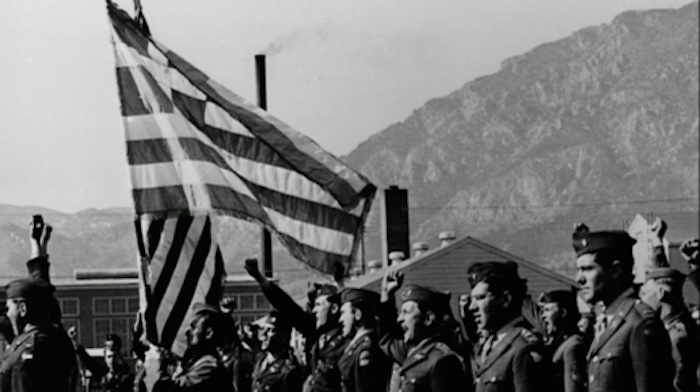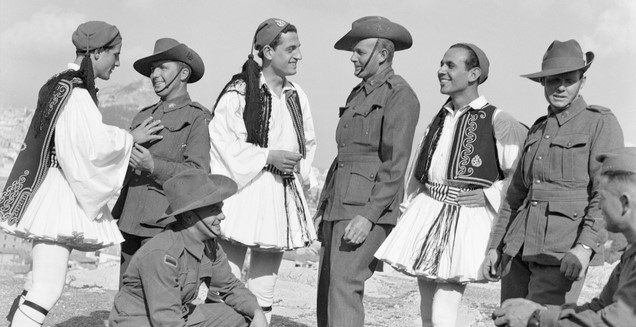By Nick Andriotakis, Secretary, Joint Committee for the Commemoration of the Battle of Crete & The Greek Campaign.
Every year on the 28th October, the Greek people, including the diaspora, commemorate ‘OXI’ (NO) Day, the anniversary of the historic response of Greeks against Nazism, Fascism and Totalitarianism in WW2. On the 28th October 1940, Greece said ‘NO’ to an invading Italian Fascist invasion, pushed them back and gave the Axis Powers their first defeat. This victorious defence destroyed the notion of Axis invincibility and gave hope to a battered and suffering world.
However, the result for Greece saying ‘NO’ created one of the most devastating impacts on any country in Europe. During WWII, Greece lost 11 percent of its population due to military conflict, civilian resistance, crimes against humanity and war resulting famine and disease. Greece lost 80 percent of its Jewish population.

As a result of OXI and the Greek victory against the fascists Italians, the Nazis invaded Greece and consequently, the allies came to its aid. In early April 1941, the Second Anzac Corps was established in Macedonia and followed the earlier victorious Australian Naval engagements in Greek waters by HMAS Sydney in The Battle of Spada and HMAS Perth in The Battle of Cape Matapan.
Greece, with the support of the ANZAC and Commonwealth Allies, resisted for over 210 days the invasion of the Axis forces. This resistance has been sighted by military leaders and historians as taking up valuable Axis Power resources and delaying the Nazi invasion of Russia into a cold and harsh winter. The defeat of the fascist Italians and the delay of the Nazis in Greece is acknowledged as turning the tide of victory in the favour of the Allies.
Australians and Greeks have been interwoven for more than a century as solid dependable allies and friends. Since the South African War (1899-1902), when Greek-Australians fought in the Boer War, Australians and Greeks have been allies in all major world conflicts defending democracy, freedom, the rule of law and human rights. Both countries were involved in conflicts large and small, most famously the Anzac Campaigns of World War I and World War II. About 2,500 Australians of Greek heritage served Australia in WW1, WW2, Korea & Vietnam.

During the first Anzac campaign in Gallipoli, the Greek island of Lemnos played an important role. It was here where the Anzacs obtained supplies, established training facilities and hospitals, safely harboured the ships and also buried some of the fallen. Some 250 Anzacs lie on Lemnos and about seventy Australians of Greek heritage served Australia in Gallipoli and Western Europe in WWI.
The Second Anzac Campaign, including the Battles of Greece and Crete, involved a second generation of Anzacs adding fresh pages to the history of their forefather’s service some 26 years earlier in the Dardanelles. Together with the Greek people, the Anzacs confronted overwhelming odds with determination and the Anzac ideals of courage, mate ship and self-sacrifice.
In 1941, over 34,000 Anzacs fought in Greece. They fought and walked nearly one thousand kilometres of Greece’s mountainous terrain and engaged in the Battles of Vevi, Tempe, Thermopylae/ Brallos and finally in the Battle of Crete. Some 1,686 Anzacs from both world wars lie in Greece and of these nearly half were never found or their remains identified. They all now rest amongst their friends, comrades and their Greek allies in this ancient land.

OXI day is the genesis of the Anzac involvement in Greece in WWII. It is important to acknowledge, commemorate and honour these historical and unique ties of Australians and Greeks. The commemoration of OXI day and the Anzacs in Greece from both World Wars is very relevant to both countries.
The Anzac legacy and OXI day continue to be commemorated and remembered with honour by Australians and Greeks around the world.
Αιωνία τους η μνήμη. Eternal be their memory. Lest We Forget.

